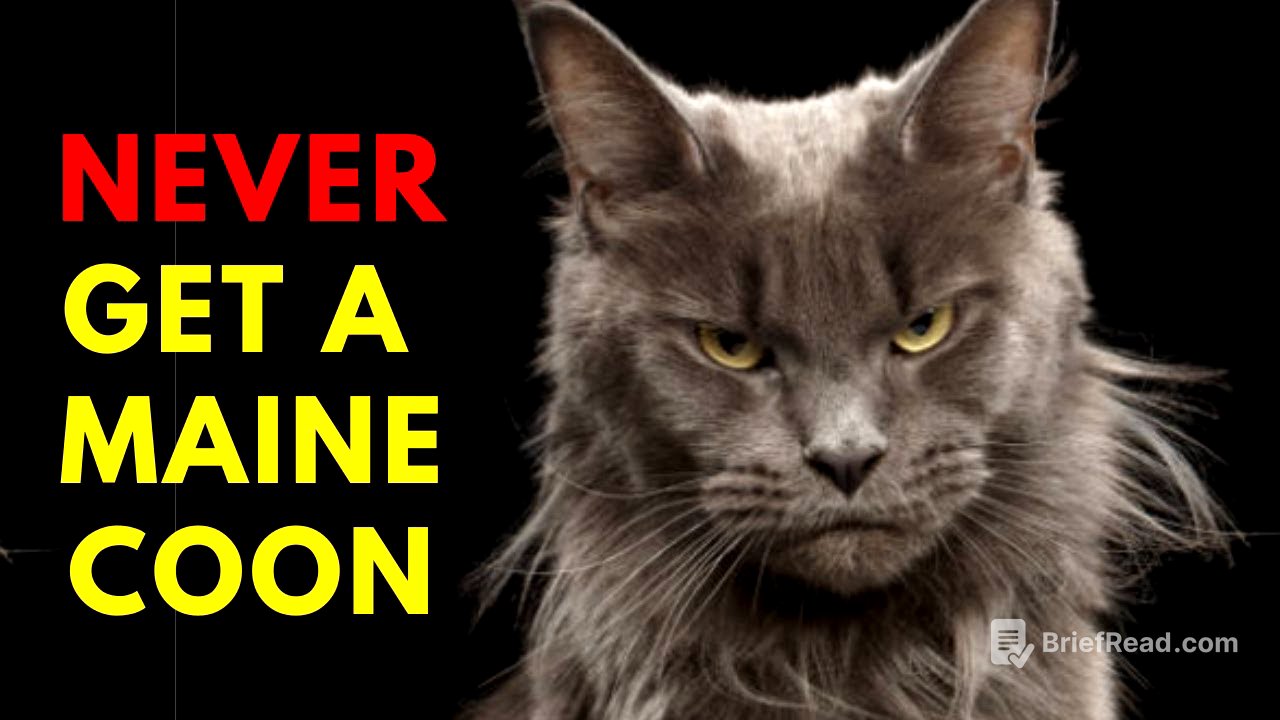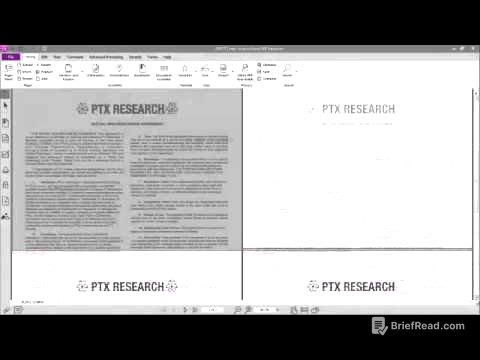TLDR;
This video outlines 13 reasons why a Maine Coon might not be the right cat breed for every owner. It covers aspects such as their high prey drive, need for enrichment and grooming, potential health issues, cost, space requirements, and personality traits like anxiety and attachment to one person. The video also addresses practical considerations like the need for larger cat towers, higher food bills, shedding and the risk of theft due to their popularity and expense.
- High prey drive may be dangerous for small pets.
- Require a lot of enrichment to prevent boredom and destruction.
- Need for regular grooming due to their long fur.
- Potential for genetic health problems common in purebred cats.
- High cost of purchase and upkeep.
High Prey Drive [0:32]
Maine Coons have a strong hunting instinct, making them excellent at catching mice and other vermin. However, this can be a problem if you own small pets like mice, ferrets, or birds, as the Maine Coon's natural instincts may lead to fatal accidents. Even with precautions, the risk remains too high for households with smaller animals.
Need for Enrichment [1:10]
Maine Coons are intelligent cats that require a lot of mental stimulation. They easily get bored with regular cat toys and prefer activities that challenge them. Without enough enrichment, they can become destructive.
Need for Social Interaction [1:35]
Maine Coons are sociable and tend to follow their owners around, but they aren't clingy. If you spend long hours away from home and prefer socializing outside, a more independent cat breed might be a better fit.
Need for Grooming [2:03]
Maine Coons have long, thick fur that requires regular grooming. You'll need to brush them thoroughly two to three times a week, or even more during shedding season, to prevent matting. Trimming may also be necessary to keep them clean, especially around their feet and backside.
Potential Health Problems [3:06]
As a purebred cat, Maine Coons are more prone to genetic health issues like hypertrophic cardiomyopathy, spinal muscular atrophy, polycystic kidney disease, and hip dysplasia. While these conditions are rare, they are a consideration for potential owners.
Expensive [3:51]
Maine Coons can cost between $1,000 and $2,500. Cheaper options from backyard breeders may lead to additional expenses due to lack of proper care and potential misrepresentation of the breed. Purchasing from a registered breeder is the best way to ensure you're getting a healthy, purebred cat.
Need Extra Large Cat Towers [4:31]
Maine Coons need larger cat trees to accommodate their size and love for climbing. Standard-sized cat trees are not suitable, so you'll need to invest in a more expensive, larger option.
Bigger Food Bill [4:53]
Maine Coons require high-quality, high-protein food to maintain their health due to their large size and activity level. Cheap cat foods with grain fillers are not sufficient for their nutritional needs.
Space Needs [5:16]
Maine Coons need more space than other cat breeds. They require their own safe and protected area, so living in a small, cramped apartment can cause them stress unless they have enough personal space.
Anxiety [5:46]
Despite their large size, Maine Coons can be surprisingly skittish and take time to adjust to new situations. They can become overwhelmed by too much stimulation, such as loud noises or large groups of people, and may hide until things calm down.
Attachment to One Person [6:16]
Maine Coons often form a strong bond with one particular person. While they can be friendly and loving to others, they won't share the same deep connection with everyone, which can be a drawback for other members of the household.
Risk of Theft [6:51]
Maine Coons are often targets of theft due to their high value and popularity. Criminals may steal pedigree cats to sell them online.
Playful Nature [7:06]
Maine Coons retain a kitten-like love of play throughout their lives. While this is often seen as a positive trait, their constant curiosity and playfulness can be a lot of work. If you prefer a calmer cat, a breed like a Persian or Ragdoll might be more suitable.
Shedding [7:53]
Maine Coons shed a lot of fur, which can create a mess if you don't invest time in grooming. Regular brushing, vacuuming, and cleaning are necessary to manage their shedding. Additionally, trimming the fur around their rear can help prevent hygiene issues.









